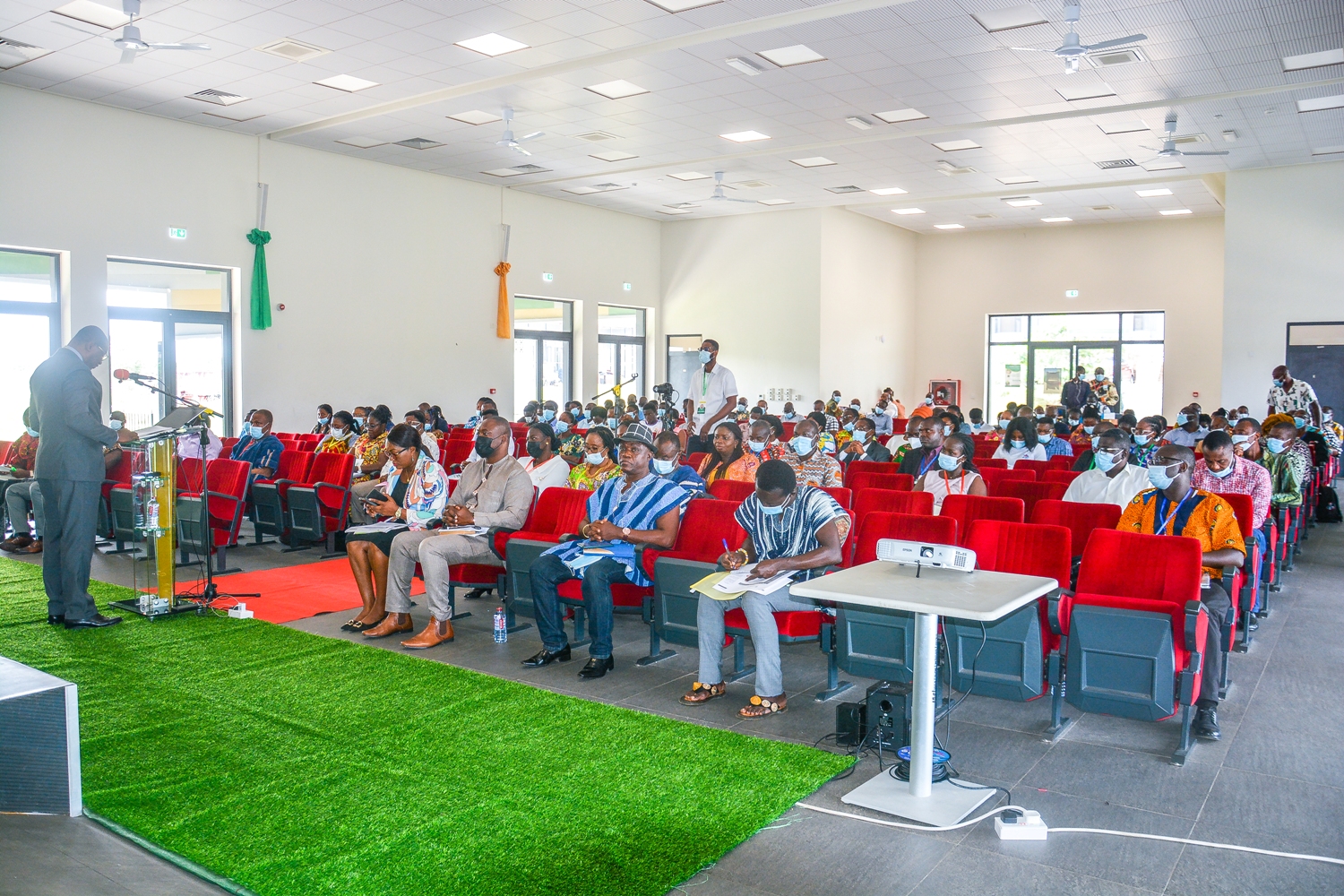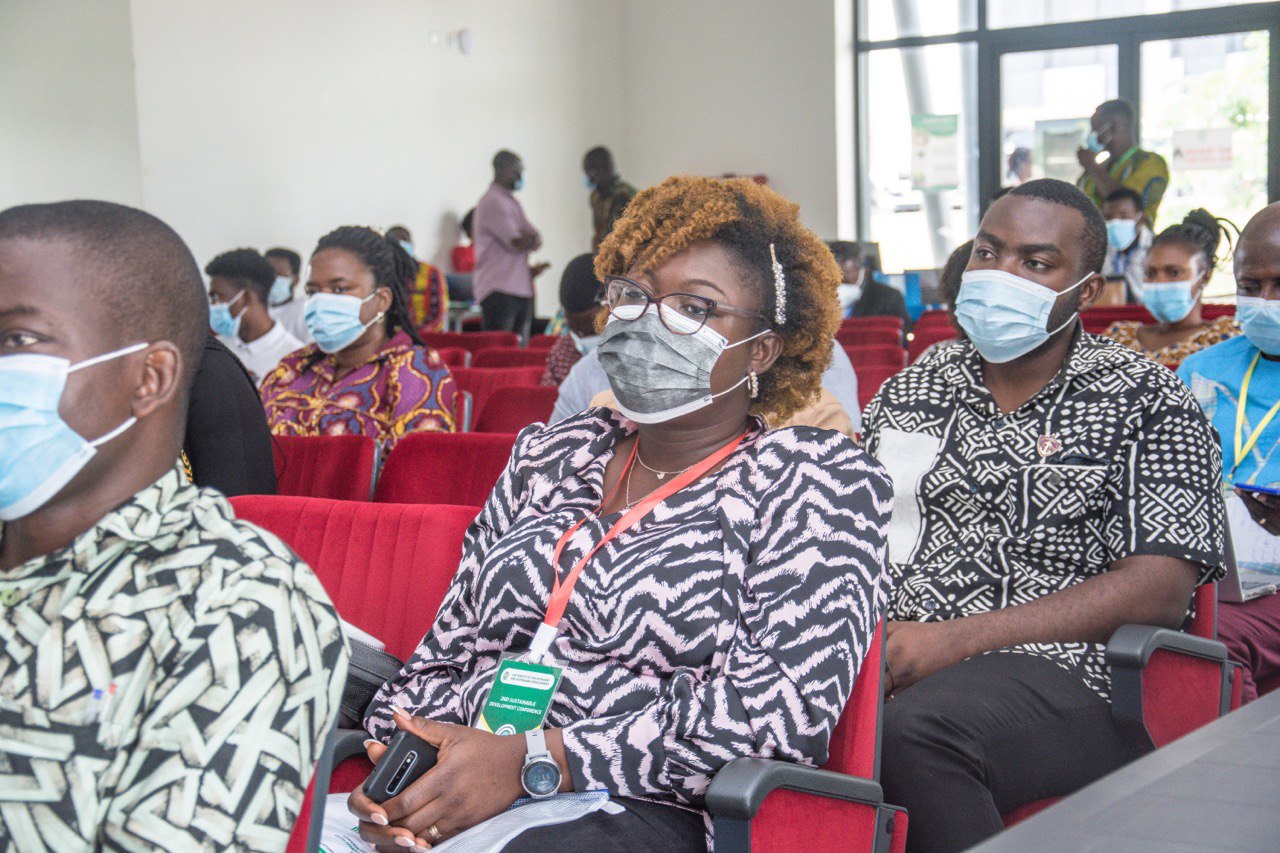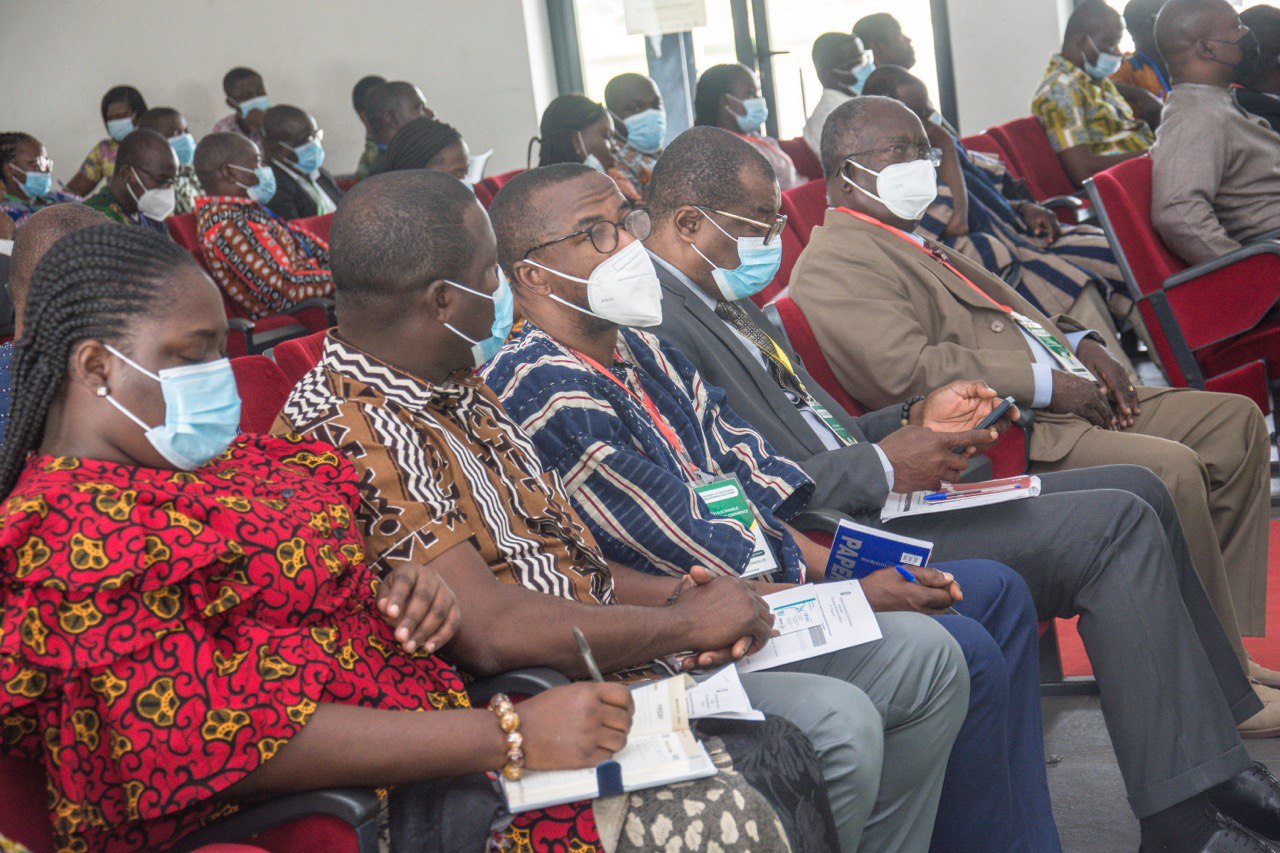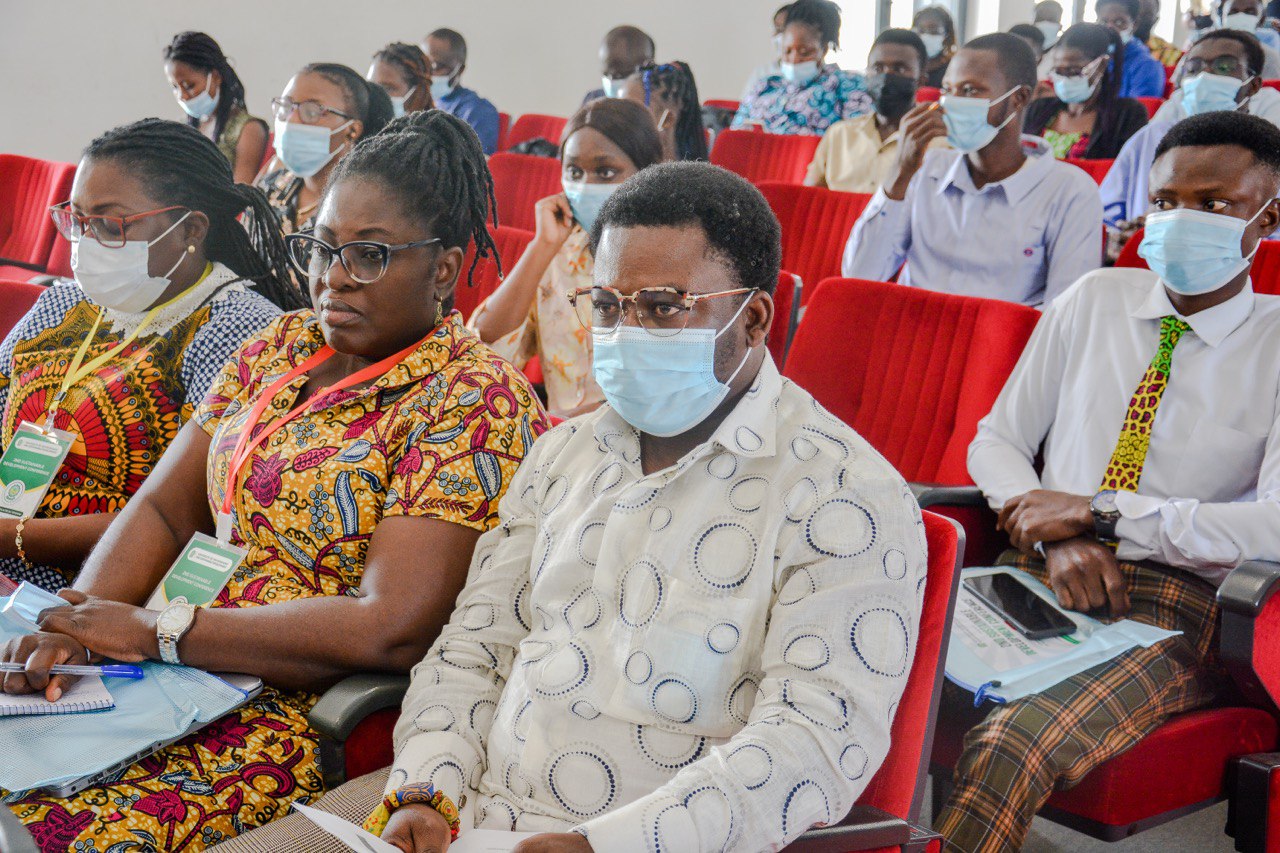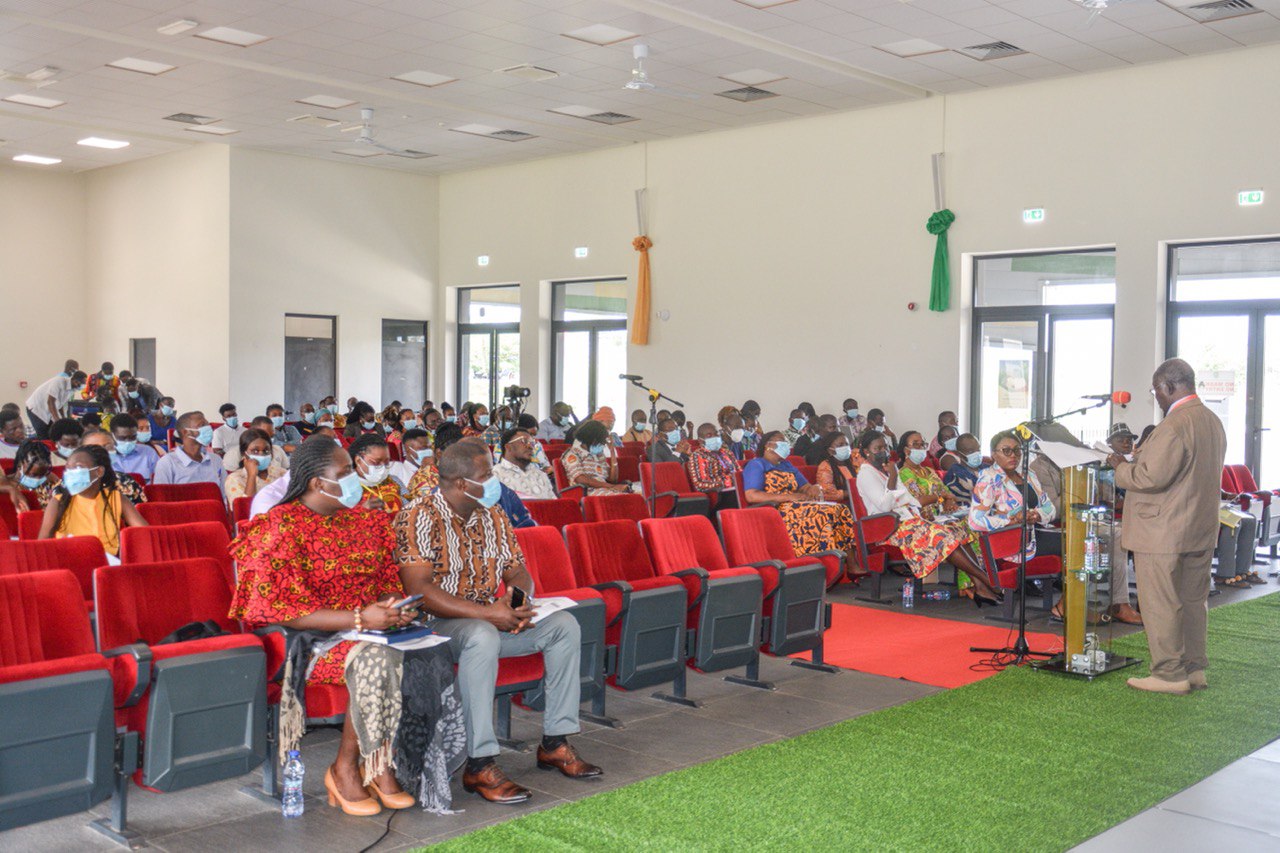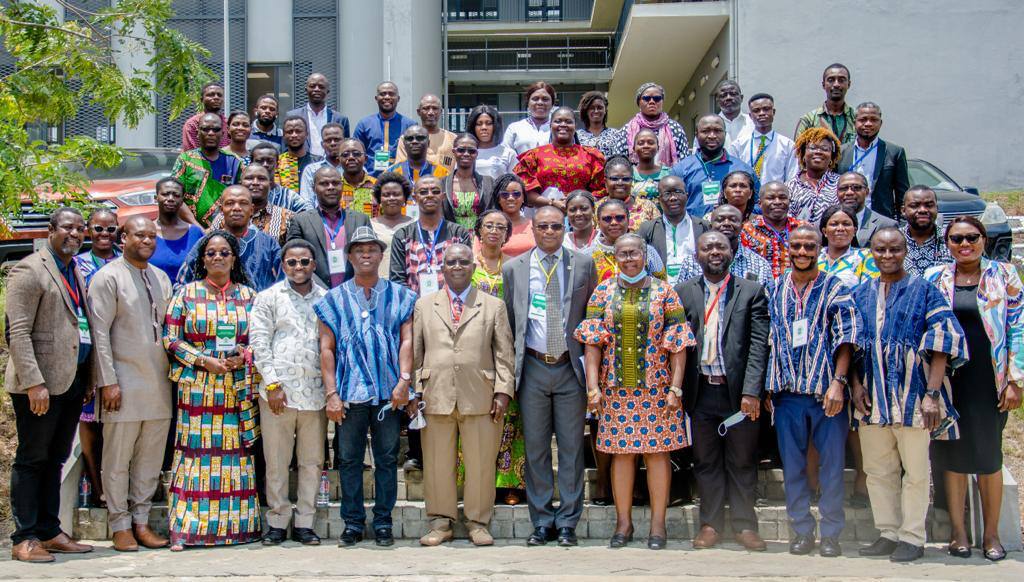The second edition of the UESD Sustainable Development Conference has taken place in the Auditorium of the Multipurpose Building of the University in Somanya in the Eastern Region. The International Conference provides a platform for researchers and relevant stakeholders from across the globe to share research findings and experiences.
This year’s conference on the theme: ‘Towards the Environment and Sustainable Development Financing in the Wave of COVID-19: The Role of Stakeholder,’ brought together more than fifty (50) researchers from Universities in Ghana, neighboring African countries, and Europe. The topics treated cut across Economics, Energy and Sustainable Financing, Environment and Climate Change, Gender, Education, Digitalization and Innovation, Circular Economy and Agriculture, and Environment and Public Health.
The Chairman of the UESD Council, Prof. Jonathan Narh Ayertey, was the Chairman of the two-day Conference. In an address, Prof. Ayertey acknowledged the drawbacks associated with the Sustainable Development Goals. Such drawbacks he stated are occasioned by threats from poverty, disease, environmental breakdown, conflicts between nations, violence, and terrorism as well as the proliferation of weapons.
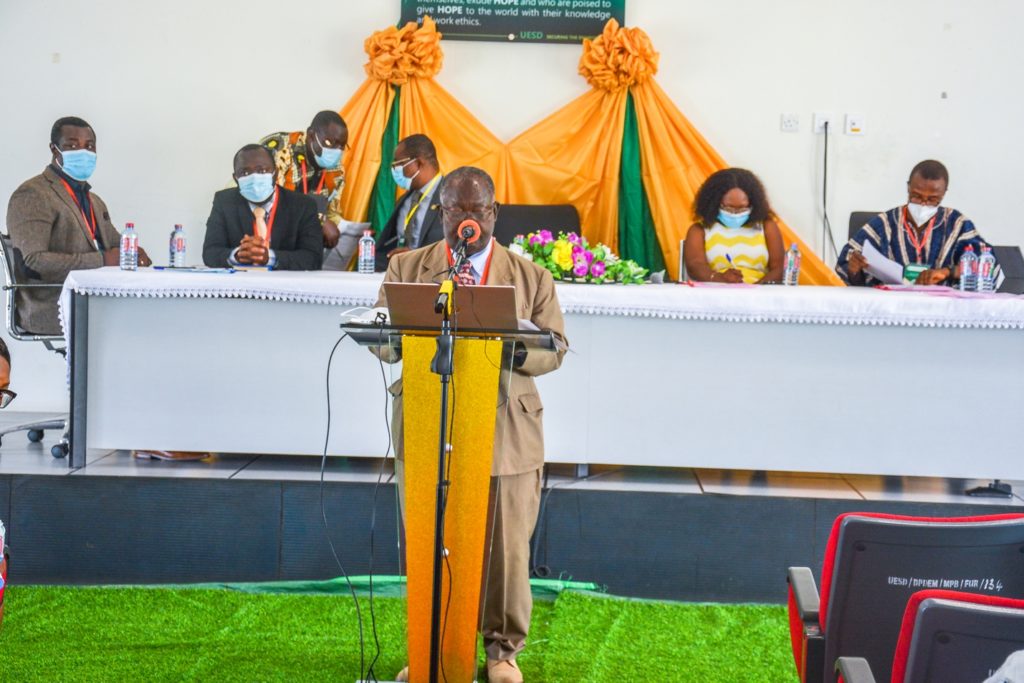
Prof. Ayertey said, the emergence of the COVID-19 pandemic further draws back the world’s efforts to mitigate the threats to sustainability, and hence, the need for world leaders to master efforts to prioritize a shared obligation to provide access to the various means of solving these challenges.
The Chairman said, though the government of Ghana is committed to attaining the SDGs, the inadequacy of finances, low private sector participation and stakeholder consultations have made the fight more difficult, thus, the need for conferences like theUESD International Sustainability Development Conference which is aimed at providing an opportunity to review and create knowledge for addressing the constellation of SDGs financing gaps related to Water, Sanitation, Energy, Food Security, Climate Change, Adaptation, Ecosystems, Biodiversity, Health, Education and identifying ways to mitigate such gaps.
The Vice-Chancellor, Prof. Eric Nyarko-Sampson, in a welcome address, described the theme for the conference as worth discussing, considering the era, ‘’we find ourselves.’ Prof. Nyarko-Sampson quoted the latest global outlook on financing for Sustainable Development Goals which indicates that, developing countries are facing a shortfall of one point seven trillion dollars ($1.7) in financial resources needed for the realisation of the 2030 SDG.
He said, engaging stakeholders to brainstorm and share creative, innovative, and technological ideas to seek appropriate financial resources to fund the SDGs in the wave of the COVID-19 pandemic is a step in the right direction. He expressed confidence that the “quality research papers’’ that would be presented at the conference would be explored and aimed at solving the financial challenges impeding the attainment of the various stages of the SDGs.
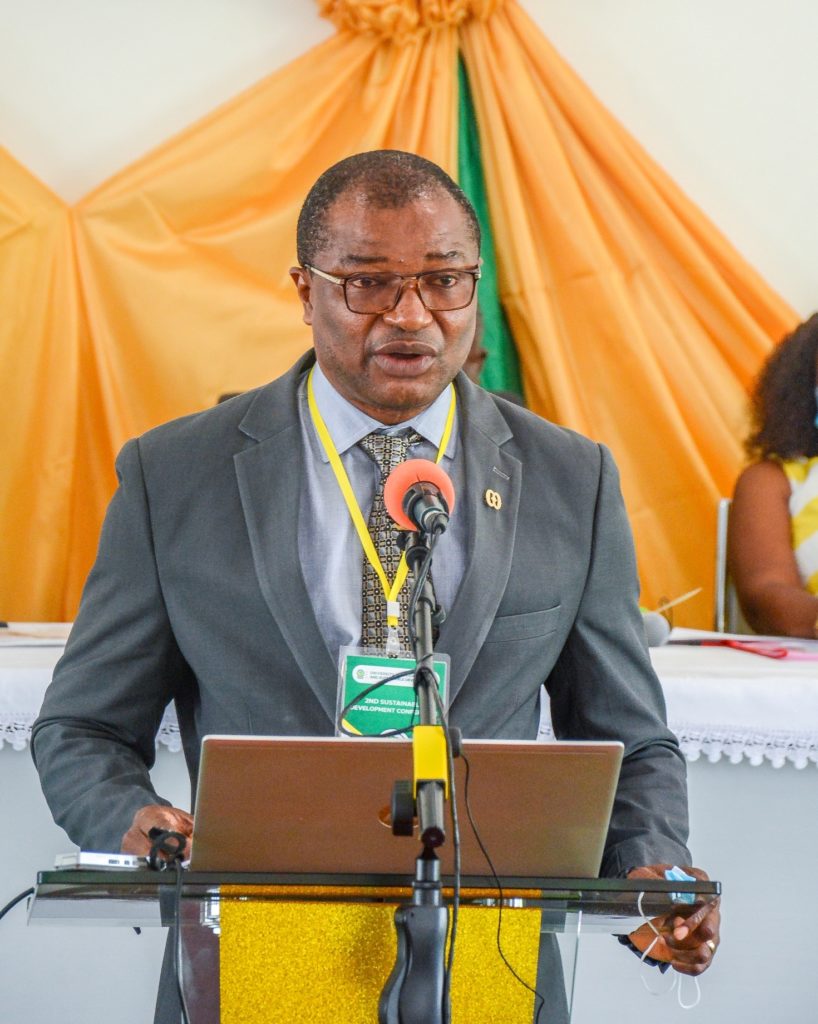
The Vice-Chancellor was delighted that four (4) students of the UESD will be partnering with two faculty members to present at the conference and commended them for their boldness. They are: Ms. Esther Appah, Ms. Portia KorlekieTeye, Mr. ElikplimAmeko, and Mr. Emmanuel Twum, and a National Service Personnel (teaching category), Mr. William Dofo Amoanyi, of Yilo Krobo Senior High School.
He also commended members of the Planning Committee, Management, staff members, and students for their immense contribution to the success of the conference.
The Keynote speakers were: The Dean of the School of Sustainable Development of UESD, Prof. Anthony Amoah, who spoke on: Strategies for Financing SDGs Implementation in the Wave of COVID-19.’ He highlighted the need for governments to come to the realization that the development of the country is the sole responsibility of the Ghanaian people flowing from result-oriented pragmatic measures as opposed to the unsustainable reliance on foreign donations and grants. The second speaker, an Associate Professor of the Twente University of the Netherlands, Dr. Frank Osei-Badu, spoke on: ‘Financing Geo-Health Surveillance and COVID-19.’

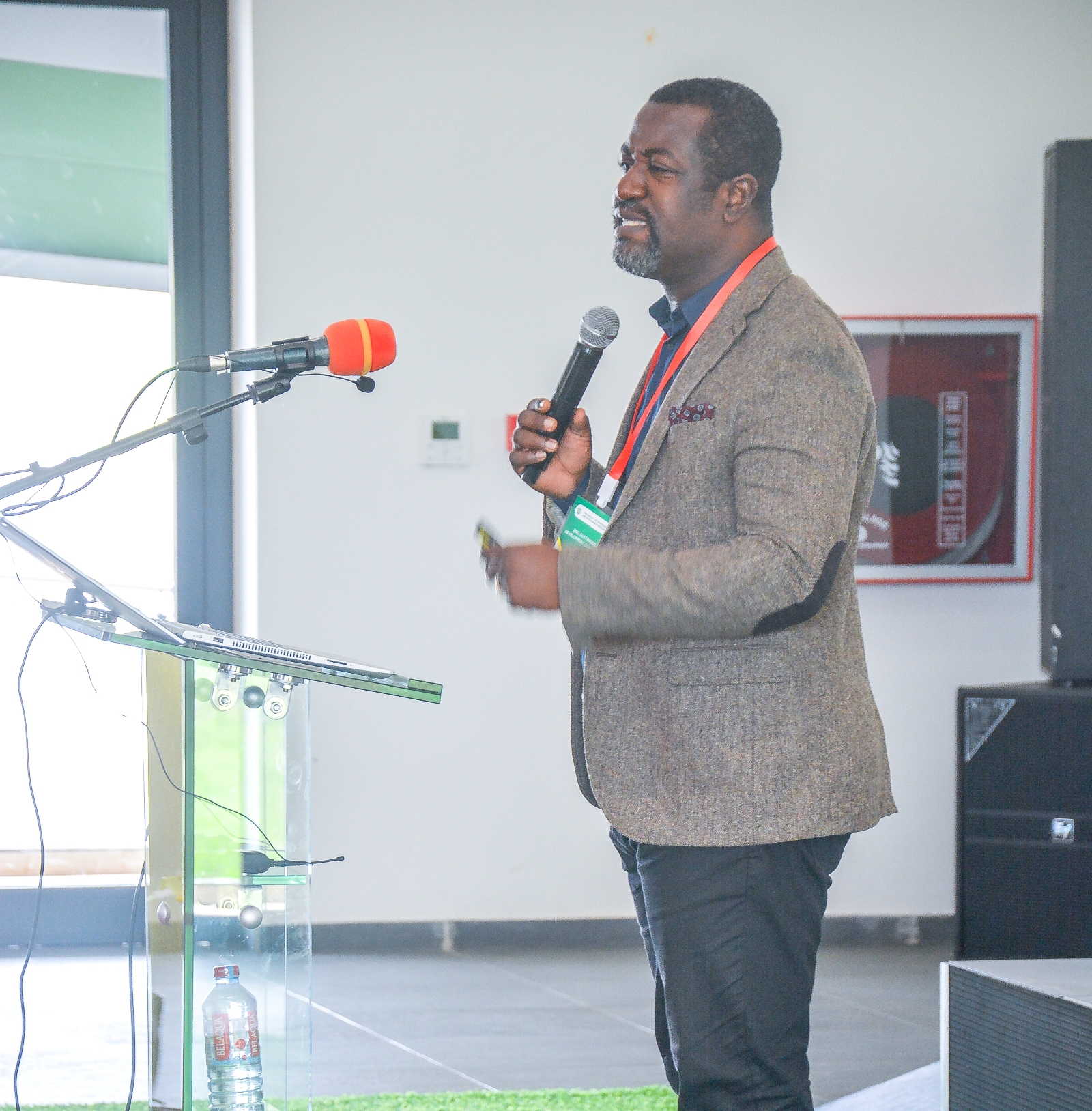
Dr. Badu’s presentation focused on the need to make financial provisions for Geo-Health surveillance. He explained that Geo-Health Surveillance is the interplay of Geospatial science and health which aids researchers and policy makers in acquiring reliable and accurate data for policy and strategic planning.
There were other presenters on day two of the Conference. Among them was the Registrar of UESD, Mrs. Mary Abena Agyepong. She presented the finding of a research she jointly carried out with Mr. George Clifford Yamson, the Head of Library. It was on: ‘Too much of a good thing: Analysis of the impact of Techno-stress on performance and productivity among UESD staff.’

The research touched on the negative impacts associated with excessive use of technology. She said, the techno-stress phenomenon is very prevalent among administrative staff whose work is significantly technology-based. She recommended the provision of relaxation rooms at workplaces where staff can relax without any technological intrusions. She also recommended that periodic stress orientation programmes should be organized for the staff and a compulsory leave system enhanced. The research suggested that techno-stress allowance and techno-stress off-days be considered as a means of compensating staff for such inconveniences.
The Conference was attended by representatives from NGOs including Friedrich Ebert Stiftung, A’Rocha Ghana, and the Country Director for British Council, Ghana.
